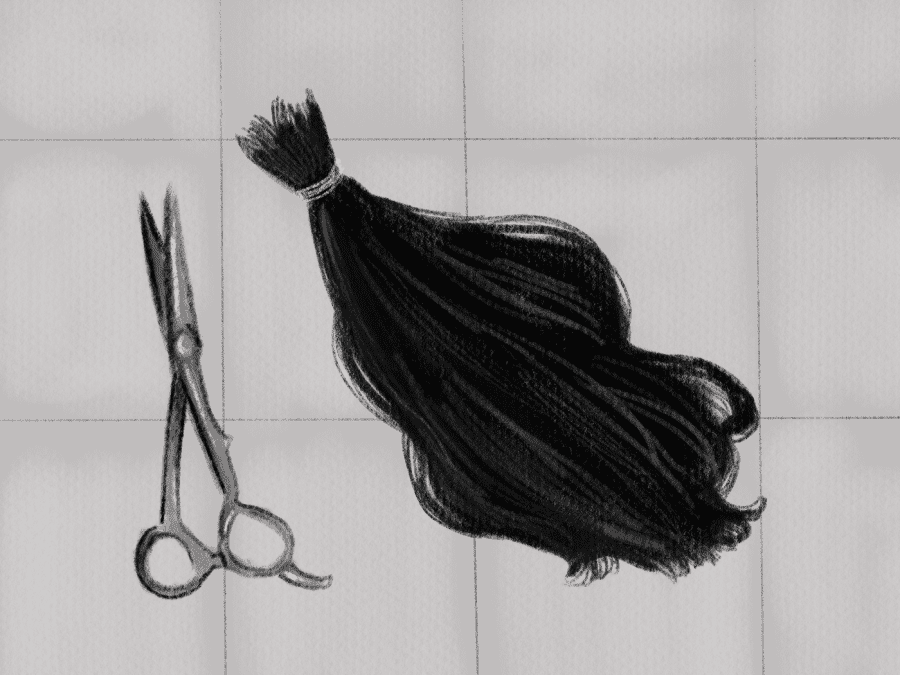Guest Essay: This isn’t the first time Iran has violated human rights.
The Islamic Republic’s current media blackout can’t hide the human rights violations that the Iranian people have endured for 43 years.
September 29, 2022
As an Iranian raised in Tehran and now a graduate student living abroad, I consider myself fortunate to be able to share my thoughts and feelings about my country and raise awareness about the current crackdown on human rights without the fear of being detained. Women in Iran do not enjoy such liberties.
On Sept. 16, 2022, after being arrested and detained in a “re-education” center by the morality police for not covering her hair properly, 22-year-old Mahsa Amini “fell” into a coma. While Iranian authorities claim that she suffered a heart attack, multiple witnesses alerted her family that she was brutally beaten by the morality police.
Freedom of dress and expression are not the only rights denied to women in Iran. The Islamic Revolution in 1979 and the establishment of the Islamic Republic led to an oppressive interpretation and enforcement of Sharia laws. Although women are allowed the right to vote and run for office through Sharia law, the age of marriage was dropped to 13, and women’s right to divorce their husbands was eliminated. In the years — if not months — after the revolution, new restrictions on child custody, foreign travel and what women were allowed to wear were imposed.
Under Sharia law, women are the property of men. When I visited various hospitals in Tehran, administrators never asked for my name — they asked for my father’s. Because of Sharia, women can’t travel without the permission of their guardian or husband, they forfeit custody of their children when divorced and they are required to cover their hair and anything below their neck starting from the age of puberty. Protesting these laws, especially hijab laws, can result in 10 or more years of imprisonment.
Amini’s untimely death has become a pivot point. It sparked an outpouring of anger and protest against the Iranian government and what are believed to be the largest demonstrations against the Islamic Republic since its inception. According to human rights groups, Iranian authorities are using excessive force — including live ammunition — to suppress protesters, killing at least 76 people thus far.
To limit the amount of news and media coverage in the country, the Iranian government initiated a nationwide Internet blackout. Access to WhatsApp, Instagram and other major social media platforms has been filtered. I personally haven’t been able to contact my family in Iran apart from the momentary glitches that permit their VPN to work, allowing messaging and calls for minutes at a time.
This isn’t the first time Iran’s leadership has used this tactic. In November 2019, gas prices increased by 50% overnight and incited major protests across Iran. The government responded with a complete internet blackout that lasted over six days. During the 2019 protests, Iranian security forces killed 321 protestors and detained around 10,000. Petitions demanding their release spread across the world, with some gaining millions of signatures.
Still, the government continued to sentence thousands of Iranians to confinement or death. If the 2019 blackouts taught us anything, it is that the government initiates media blackouts in an attempt to imprison and kill those who stand up to them. Since Amini’s death, thousands of people — including lawyers and journalists — have been arrested, and the death tolls continue to rise.
The human rights violations against Iranians were overlooked in 2019, and they are being overlooked again three years later. Iranian President Ebrahim Raisi attended and spoke at the United Nations General Assembly in New York City on Sept. 21 despite chaos in his country. Protest efforts went unnoticed and unsupported by the U.N. and American officials. I was at a protest outside the U.N., and it was an incredibly disheartening experience to see Raisi, a man believed to have personally sentenced 3,000 Iranians to their deaths, not only granted a visa to come to New York but also allowed to speak without interjection by any officials apart from Israel’s U.N. ambassador.
After 10 days of chaos and unrest, the U.N. finally condemned the Islamic Republic’s violent crackdown on the Iranian people. The United States and the European Union are also considering increasing sanctions against Iran, but we need immediate action. Iranians are being arrested, beaten, sentenced to jail and murdered for protesting the death of an innocent 22-year-old and the violations of rights they have helplessly endured for decades. It takes an enormous amount of courage to publicly demand reform in a country that suppresses dissent. They are risking their lives and fighting for the basic human freedoms they deserve. I hope that this time, we don’t let the brave personal sacrifices of the Iranian people go unnoticed, and that responsible leaders and governments finally take action against the Islamic Republic’s crimes against humanity.
Nicky Kashani is an Iranian raised in Tehran, and a graduate student in NYU’s Experimental Humanities and Social Engagement program.
WSN’s Opinion section strives to publish ideas worth discussing. The views presented in the Opinion section are solely the views of the writer.
Contact Nicky Kashani at [email protected].























































































































































